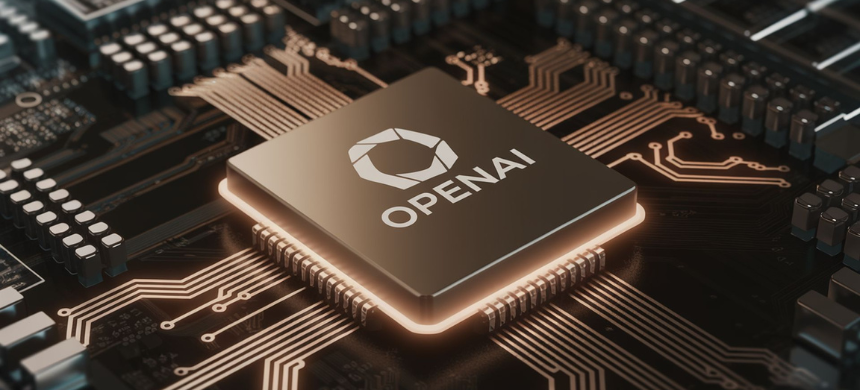OpenAI Advances AI Chip Development to Reduce Nvidia Dependence
OpenAI is in the final phase of developing its own AI processor, aiming to lessen its reliance on Nvidia’s hardware. According to Reuters, the company intends to submit its chip designs to Taiwan Semiconductor Manufacturing Co. (TSMC) for fabrication in the coming months. However, OpenAI has not officially confirmed the project, and many of its technical specifications remain undisclosed.
The upcoming AI chip will undergo multiple iterations. By producing its own hardware, OpenAI could strengthen its bargaining position with suppliers while working toward long-term independence from third-party chip manufacturers.
Read More: NUST students will receive training in chip design
Why OpenAI is Entering the AI Hardware Market
OpenAI’s shift toward custom AI chips aligns with a broader trend among major tech companies like Microsoft, Amazon, Google, and Meta. These firms have all developed AI accelerators to mitigate Nvidia’s high GPU costs and tackle supply constraints.
Speculation about OpenAI’s AI chip development first emerged in October 2023. Since then, CEO Sam Altman has actively pursued investments—reportedly up to $7 trillion—to expand global chip manufacturing capabilities.
Challenges in AI Chip Development
Creating a custom AI processor is a resource-intensive process. Experts estimate that a single chip design can cost around $500 million, with additional expenses for software and hardware potentially doubling the budget.
Leading the project is Richard Ho, a former Google chip designer, supported by a team of 40 engineers working alongside Broadcom. OpenAI has selected TSMC, the same manufacturer of Nvidia’s Blackwell-series GPUs, to fabricate the chips using advanced 3-nanometer technology. These processors will likely feature high-bandwidth memory and networking capabilities similar to Nvidia’s GPUs.
Expected Deployment and Potential Delays
The first-generation OpenAI chip will primarily focus on AI inference—running AI models rather than training them. Initial deployment will be limited, with mass production at TSMC expected in 2026. However, the first batch may face technical challenges, potentially causing delays.
Increasing Investments in AI Infrastructure
OpenAI’s move into hardware development comes amid record-breaking AI infrastructure investments by tech giants. Microsoft plans to invest $80 billion in AI infrastructure in 2025, while Meta has allocated $60 billion for AI advancements.
Additionally, OpenAI has unveiled its $500 billion “Stargate” project, a collaboration with SoftBank, Oracle, and MGX, aimed at building new AI data centers in the U.S..
With the growing demand for AI computing power, OpenAI’s decision to develop in-house AI chips is a strategic move toward greater autonomy, cost efficiency, and scalability in the evolving AI industry.











